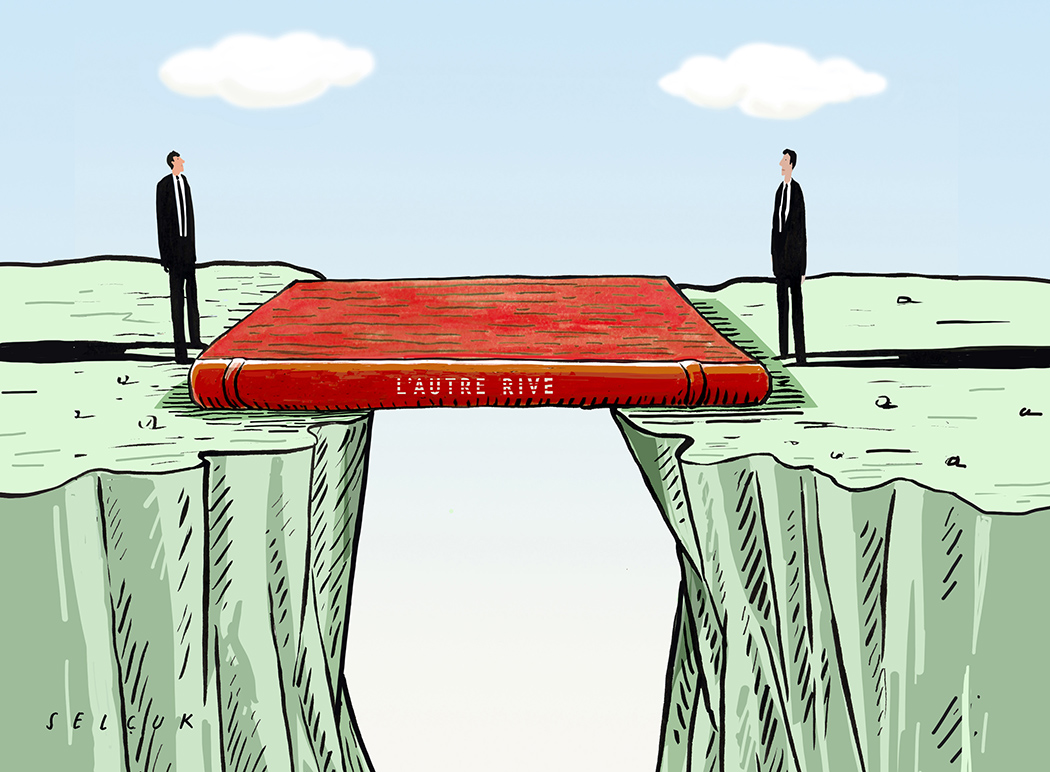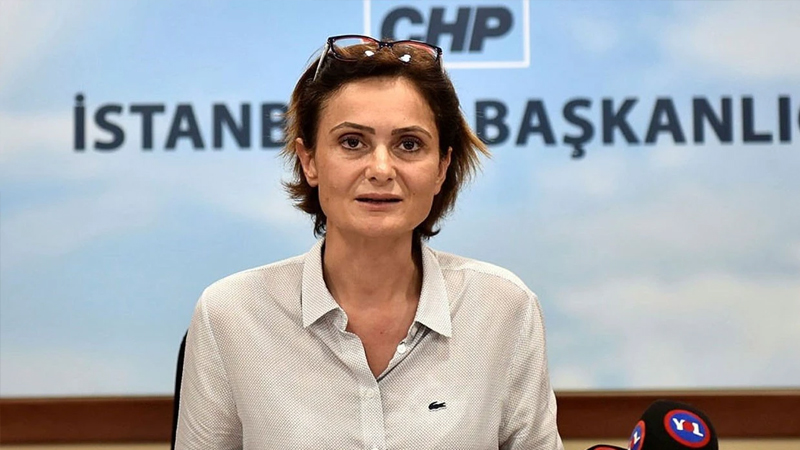President of AKP, Recep Tayyip Erdogangathered the provincial heads of his party and “Today’s Turkey is more democratic and free than 21 years ago” said.
I would like to agree with him actually.
If a party like today’s AKP was in power when the AKP was established 21 years ago, he and the other founders of the party would have bitterly experienced how it was forbidden to engage in politics.
Just before Erdogan uttered these words, Canan Kaftancıoğlu, “banned from politics” as a result of a political trialA discussion was going on over his words.
Kaftancıoğlu’s “We will send a dictator from this country through democracy” His words were met with harsh reaction from AKP spokespersons.
Spokesperson of the party Omer Celik these words “targeting the national will” told.
Talking about a democratic election, Kaftancıoğlu’s claim that he was targeting the national will sounded a bit strange, but we haven’t been looking for consistency in this friend for a long time anyway.
Bülent Turan, AKP Group Deputy Chairman He was one of those who responded. He spoke more clearly: “Would it be an election if he was a dictator? If he were a dictator, would you be able to curse these things?” said.
In a democracy, it should be emphasized that those who are the addressees of political criticism perceive it as “blasphemy”. We’ll do this later.
We know that from time to time, opposition spokespersons criticize Erdoğan as a “dictator”. His response is usually like Turan’s response: If he was a dictator, would you say that?
 Pattern: Selcuk Demirel
Pattern: Selcuk Demirel
This is the right approach.
Because you cannot call a dictator a dictator. Anything can happen to you.
Because dictators also know that being a dictator is a very despicable thing, they don’t like to be told or talked about.
They know that they are dictators, but they don’t want to be told.
So, can we describe the regime in Turkey as a “democracy” just because Kaftancıoğlu was able to freely say “dictator”?
 CHP Istanbul Provincial Chair Canan Kaftancıoğlu, in her speech addressing the heads of the youth branches of 81 provinces of her party on 12 August, said: “To our party, to our party’s principles, to your youth, to our president who made your dreams and yourself targets, the opportunities offered by our president to you and the opportunities you have created for our party president and our party. And by relying on the energy you have increased, perhaps we will achieve a first in the history of the world. We will send a dictator from this country through democracy,” he said.
CHP Istanbul Provincial Chair Canan Kaftancıoğlu, in her speech addressing the heads of the youth branches of 81 provinces of her party on 12 August, said: “To our party, to our party’s principles, to your youth, to our president who made your dreams and yourself targets, the opportunities offered by our president to you and the opportunities you have created for our party president and our party. And by relying on the energy you have increased, perhaps we will achieve a first in the history of the world. We will send a dictator from this country through democracy,” he said.
This is indeed a questionable situation.
The fact of the matter is that countries like ours partial democracy countries.
Let’s draw an imaginary line with “pure democracy” at one end and “pure dictatorship” at the other.
To which point can you position Turkey closer on this line?
Of course, we would be farther from “pure democracy” and relatively close to “pure dictatorship”.
But we are not on either extreme, for him the claim of “dictator” makes sense as a political claim, but it does not reflect the pure truth.
in Washington Georgetown University professor of psychology Dr. Fatali Moghaddam‘of “The Psychology of Dictatorship” I’ve talked about his book before.
Moghaddam signed a copy of this book and gave it to Erdogan as a gift, and I joked in my column: In case Erdogan writes that book, he won’t read it!
As a matter of fact, that’s why I didn’t go to jail, so there must have been someone there who would understand that I was joking.
Dr. In this book, Moghaddam also gives a test to help us understand whether a regime is a democracy or a dictatorship.
Now take this test and decide by placing the signs on the line that is pure democracy on one end and pure dictatorship on the other.
You can also make a total decision about the nature of the regimen by looking at how loudly you can say your decision as a result of the test.
1 – Town Square Criterion:
Moghaddam, this criterion, first condition of democracy defines as.
Can a citizen go out to the square of his city and speak freely without fear of being arrested, imprisoned, or subjected to physical violence?
Turkey’s position is close to which end on the line I mentioned above?
2 – Criteria for sending the power to the ballot box:
The minimum condition for democracy is that power can be changed through free elections. Can the citizens send the powerful leader in power in a regularly held free election, where political rivals compete with equal rights, propaganda is free?
Turkey’s position according to this criterion is close to which end of that line?
3 – Minority rights criterion:
Do you live in a country where the majority ignores the rights of the minorities or do every individual have equal rights? Can the power based on majority votes restrict minority rights by justifying this?
When we say “minority rights”, we are not only talking about the rights of religious and national groups, but also about LGBTI+ rights, women’s rights, children’s rights, animal rights, and conscientious objectors.
Turkey’s location, near which end?
4 – Independent judgment criterion:
The only guarantee that will ensure the real implementation of the criteria we have mentioned so far is the existence of a judiciary independent of politics in the country.
How do the courts behave in cases where the subject is political? How open is the judiciary to the pressure and control of the government? Can the judges who make the decisions that the government does not like, continue their duties?
Consider the courts that tried Kaftancıoğlu, Osman Kavala and his friends, the generals who were in office on February 28, and give your note. Which end is Turkey closer to?
Which end of the line on which you marked these criteria are close? Pure democracy or pure dictatorship?
I did the test myself, and got an average very close to the other end, far from democracy.
If you are wondering if we were far from pure democracy 21 years ago, as Erdoğan said, but now we are closer, I would say try to reminisce about 21 years ago.
“How can we remember the old days” If you say so, I will recommend two books written by my journalist friends:
1 – 2001 The Last Year of Old Turkey. Mirgun Cabas.
2 – Society of Fear. Born Sold.
Who is Mehmet Y. Yilmaz? Mehmet Yakup Yilmaz was born in Malatya in 1956.‘was born too. He completed his primary school in Antalya Devrim Primary School, middle school and high school in Denizli High School.‘He graduated from Ankara University, Faculty of Political Sciences, Department of Economics and Finance in 1977. He graduated from Ankara in 1975 while he was a SBF student in journalism.‘Echo Magazine under the direction of Mehmet Ali Kislali‘started in. He also served as the Editor-in-Chief of the journal for a while. Before the September 12, 1980 coup, he worked as a press consultant in the Turkish İş-affiliated Yol İş Federation and YSE – İş unions, and published the union’s newspapers and magazines. Military Service Military Academy‘After completing his career in Istanbul Gelişim Publishing, he returned to his profession. He worked as the Deputy Editor-in-Chief of Erkekçe and Bilim magazines at Gelişim Publications, and then as the Editor-in-Chief of Gelişim TV Magazine. Hurriyet in 1985.‘e and Hürriyet Magazine Group‘he founded it. He published magazines such as Tempo, Blue Jean, Playmen. Later, he was appointed as the General Manager of Periodical Publishing. Number 1 Publishing of Periodical Publishing with Ercan Arıklı‘He assumed the position of General Manager during his transformation into a. He became the founding editor-in-chief of journals such as Aktüel, Cosmopolitan, Penthouse and Oya. 30 to date‘He was the founder of more than ten magazines. At the beginning of 1995, he published Posta newspaper. He founded the Fanatik newspaper at the end of the same year, and the Radikal newspaper at the end of 1996, and served as the editor-in-chief. In 2000, he was appointed as the General Editor of Milliyet Newspaper. After 5.5 years in this task, Doğan Burda Magazine Group‘CEO of‘took on his duty. He worked as a columnist for Hürriyet newspaper from 2005 to September 2018. October 2018‘from T24‘You started to write. “I Chose Red, Love Was Under the Blue” compiled from newspaper columns, “Say Hello to All My Loves from Me”, “His books titled “Is There Any Life After Love” and “I Lost My Surprise, It Is Void” were published. “His long story “Does Love Forgive Everything” was also published as a book. “Mehmet Y. Yılmaz, who is the journalist with the most publications in the Turkish media, is known for his essays and his comments on football, as well as current political developments. |
